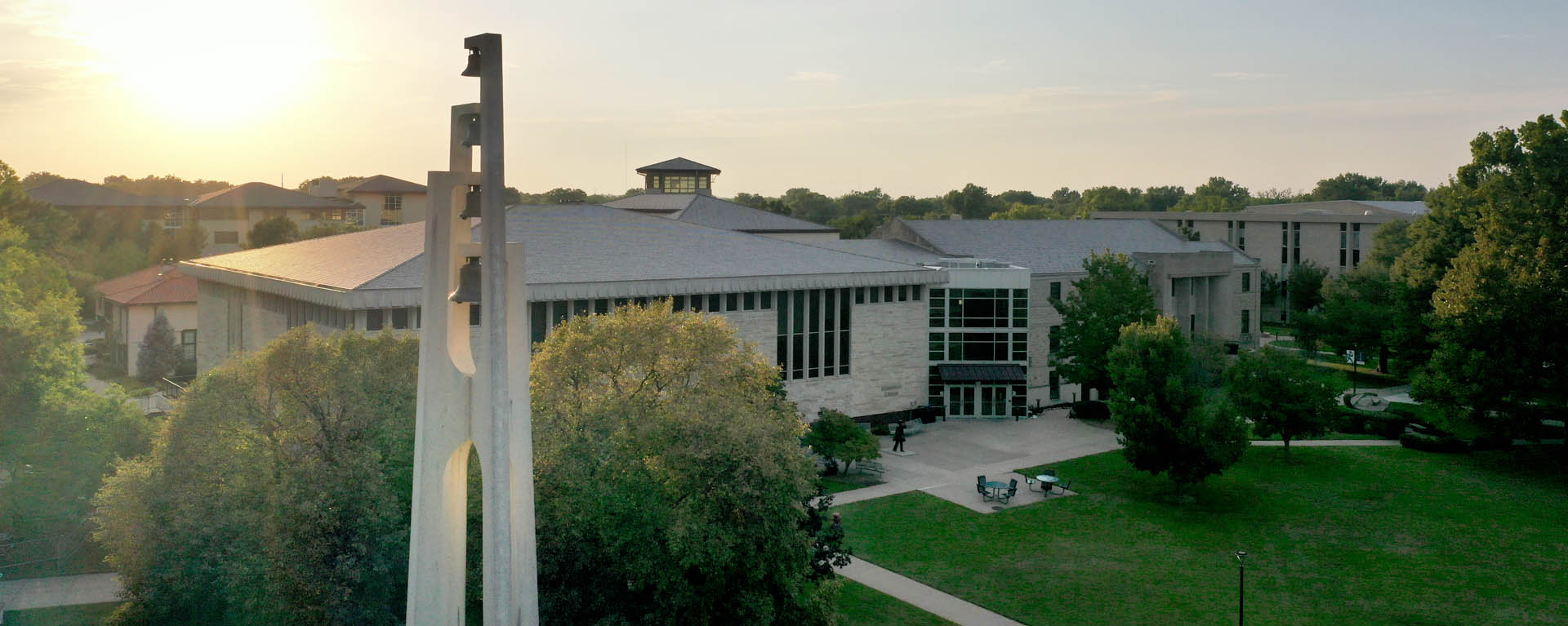
What can you do with a history degree? A lot.
Washburn graduates share how they use the skills they learned studying history in their careers today.
- Academic Advisor
- Attorney
- Business Analyst
- Financial Advisor
- High School Librarian
- Law Student
- Legal Assistant
- Lobbyist for Little Government Relations
- Ph.D Candidate
- Program Manager
- Public Services Librarian
- Software Engineer
- STAR Program Coordinator
- State Archives Librarian
- Teacher (Danielle)
- Teacher (Britiany)
- University Librarian (Scott)
- University Librarian (Stephen)
- University Records Manager

Areli Bermudez-Villareal
BA History, 2018, Public Services Librarian, Topeka and Shawnee County Public Library
When I first declared my major as history, I was planning on being a teacher, but then I considered going into the film and medical fields before ultimately choosing to pursue libraries. Quite a list, right? All of these potential careers utilized the skills I gained from my history degree, though. Each one utilizes research and writing skills in different ways. I also tackle problems from multiple perspectives, just as I did in my classes. My current job also has me working in our local history room, allowing me to use my degree more directly. Moreover, my degree reminds me that if the past Areli could write a 20-page historiography with only Wendy's 4 for $4 meals in her stomach, she can survive leading activities for the library's summer reading program. That's worth millions, my friends!
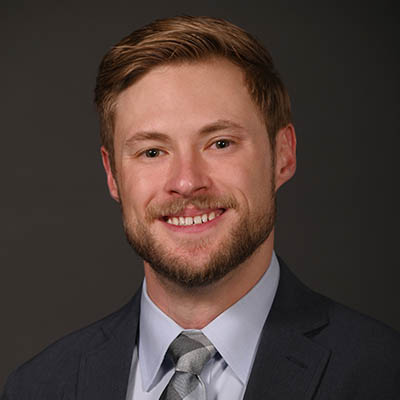
Scott Brackey
BA History 2015, MLS Emporia State 2017
In the fall of 2023, I seized the opportunity to come back to Washburn to serve as an instructional librarian. In this role, I facilitate students' development of information literacy skills and practices. My history education formed the basis for my own literacy and support for intellectual freedom. Students of history understand that history is constructed, not simply recorded. They are, therefore, skeptical of information until they have evaluated it thoroughly. Historical information is complex, nuanced, contextual and often ambiguous. The spans of time and place present unique challenges to locating this information. Teasing out meaning and facets of reality-discerning the ways in which the past shapes the present and the present the past-requires critical thinking and rigorous investigation. Clear and effective writing is essential to synthesis and one's contribution to the scholarly conversation. Librarians and history students, I believe, are naturally curious and have a love for learning. Both value diversity of perspective and representation, and each recognizes the intrinsic value of information. My undergraduate education informs my understanding of the purpose that libraries serve in society, and this makes my job all the more rewarding.

Cassandra Blackwell
BA History 2013, Security Benefit SQL&Tableau Certified, Cornell University
How do I use my degree in my career as a Business Analyst II for Security Benefit? I actually use my degree in my everyday life. See, a degree is just a piece of paper until you breathe life into it. A history degree has equipped me with top-notch technical writing skills, the ability to effectively research and think critically and to draw my own conclusions which further enable me to provide innovative solutions to complex business issues. Whether it is interpreting numerical data or pinpointing the breakdown in a business process, my ability to absorb information and draw and expert conclusion to resolve the problem are all skills I learned in my history courses. Just use that out-of-the-box history thinking, and the sky is the limit on what you can do with a history degree.
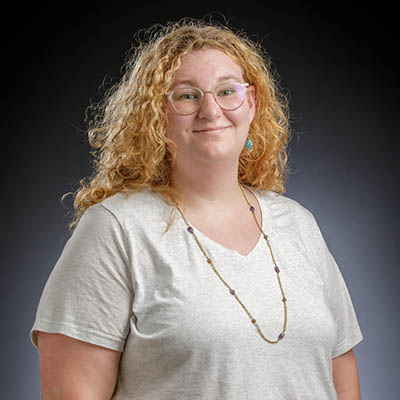
Brianna Bradshaw
BA History 2020, MSEd Fort Hays State University 2023
My passion was researching Indigenous history and citizenship where I connected with our amazing faculty and the rich network of historical and archival resources within the Topeka area. I accepted my first position as an academic advisor and university instructor at Oklahoma State University in summer 2023. My degree in history prepared me to research, analyze data and present a cohesive theory. As I begin my first semester of teaching, I plan on utilizing my knowledge of information literacy, writing styles and history to connect with my students to ensure their success as college students and beyond. A degree in history can allow you to notice patterns of current trends in politics, society, economy and more. It sets you up to have the tools to be an engaged, global citizen bettering the future by not repeating history.
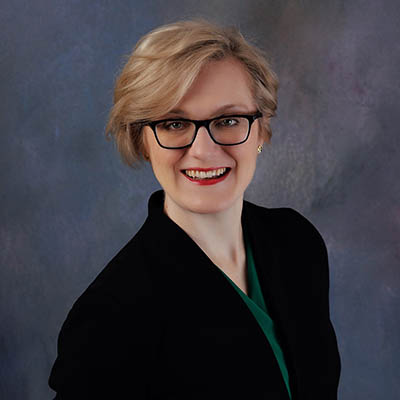
Whitney Casement
BA History, 2009; WU Law, 2012
During my college career, Washburn University's History Department professors taught me how to write professionally and think critically. My history education gave me a huge leg up when it came time to go to law school and in my career as an attorney. I was miles ahead of my law school classmates, particularly in terms of my writing skills. Writing and critical thinking skills are the basis for so many jobs, but especially for attorneys. I attribute a significant amount of my success as a litigation attorney to my Washburn History Department experiences. And I love that I continue to keep in contact with my college professors to this day!
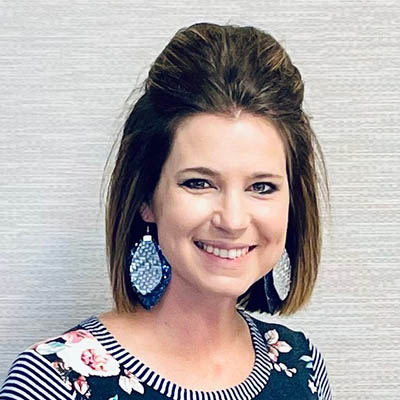
Danielle Evans
BA History 2009, Teaching Endorsement from WU 2011, Masters Adaptive Special Education, Fort Hays State University 2013
2023-2024 Kansas Teacher of the Year nominee, 2023-2024 Rock Creek Secondary Teacher of the Year
I utilize the skills I learned as a history major every day. The History Department taught me to research and present. I utilize those skills in my job as a special education teacher. More importantly, my degree taught me how to work with others. As a history major, I learned how to research, respectfully disagree with others, and how to advocate. Those skills have helped me to be the teacher that I am today. I would recommend a degree in history to anyone. The skills you learn are invaluable in the workplace.

Andrew Gallegos
BA History, 2020, Washburn STAR Program Coordinator
I learned how to understand the multiple layers and complexity of situations through my history degree. In many scenarios of history, different people and events are going on at the same time, which can often correlate with one another. This converts over to student success and how to help students. I was able to understand right away that students are also very complex, and assessing their needs often does not fall into one category. Like history, it is essential to see the whole picture and work through the information to help find the best observation/solution.
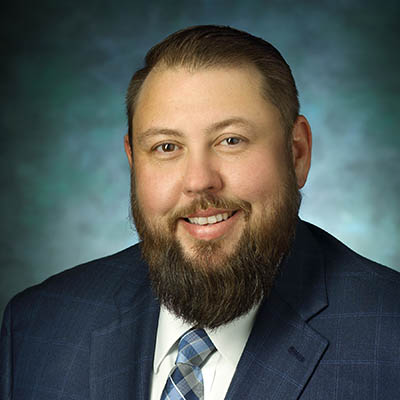
Christian Gilbert
BA History, 2014
I am currently a senior program manager for The Johns Hopkins Hospital in Baltimore, Maryland. I oversee the day-to-day operations of the Center for Transgender & Gender Expansive Health including quality improvement oversight. I presented to the Governance Board of the hospital last week to showcase the work I've accomplished since joining the organization nine months ago. Afterwards, I received positive feedback on how well I communicated the content and the work I've been doing. I left the meeting feeling incredibly proud of myself for nailing the presentation, but I also found myself in a space of reflection. I have been in awe since landing this opportunity of a lifetime - maybe even a bit of imposter syndrome, if you will. But I realized after this presentation that I am here because I became a history major.
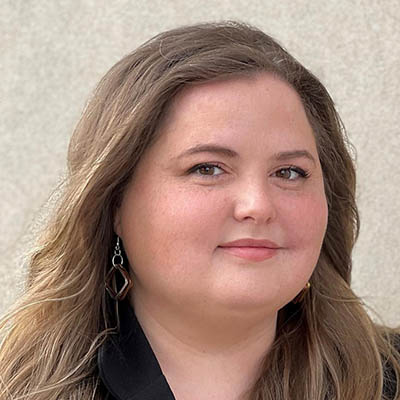
Danielle Hall
BA History 2018, MLS Emporia State 2021
I completed my bachelor's degree in history from Washburn University in 2018 and was immediately able to find two part-time jobs with the Kansas Historical Society Archives. In May of 2021, I graduated from Emporia State University with a master's degree in library science and information management with an archival studies concentration. Thanks to both my bachelor's and master's degrees, I was hired in 2021 as the archives and educational director for the Jackson County Historical Society and the 1859 Jail Museum in Independence, Missouri. In June of 2023 I began a new position as Kansas State University as their University Records Manager. Although I am in a more administrative role, I still use my bachelor's degree on a daily basis. I help the university archivist in research projects for patrons, and I am also working on writing a publication for a professional history journal. The skills I learned from Washburn University's History department have played a huge role in my professional success, and I encourage anyone who can to go through the program.
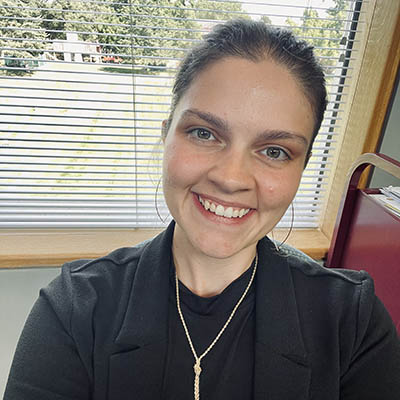
Olivia Irwin (Banzet)
BA History 2018, MLS Emporia State 2020
I ... use my BA and MLS as a librarian for the Kansas State Historical Society Archives Division. I ... get to use Kansas, late modern, and general U.S. history as well as political science knowledge, research and writing skills gained from the amazing History Department team at WU.
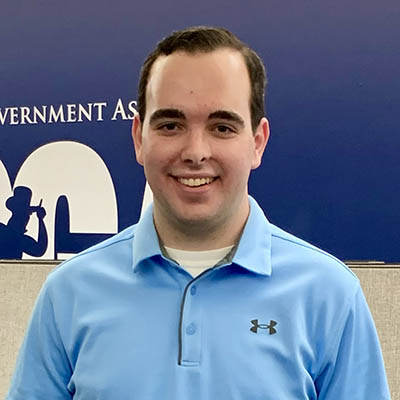
Trey LaRue
Since graduating, I have been working as a legal assistant at Stevens & Brand in Topeka. My job requires strong reading and writing skills to help lawyers draft filings and analyze complex and dense documents. However, my history degree best prepared me to assist in researching legislative history. Often when litigating, it's not enough to simply know what a statute says. You need to know why it was written that way. To that end, the skills I developed as a history major (intensive research and the ability to write succinctly and logically) help me to identify when and why a legislative committee or chamber chose to accept or reject different versions of a bill, thereby gleaning some insight into their intent in enacting a statute. I use the research, writing and analytical skills I developed as a history major every day. To the prospective history major considering a future career in the legal field (as I am), a history degree from Washburn will serve you well.
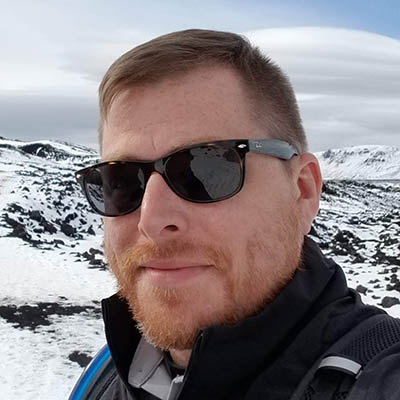
Ryan Long
BA History 2013, MBA Baker University 2015
My time as a history student at Washburn was an incredible experience that had a huge impact on my success today. As a financial advisor and day trader in Bentonville, Arkansas, I have recognized that communication, research and writing are essential skills for owning a business as well as being successful in any endeavor. Understanding the history of those around you is even more important. Acknowledging and recognizing the challenges and differences of the various cultures that make up this amazing country is invaluable. Washburn taught me these things as a history major. I entered as a very young and naïve kid but left as a much more well-rounded individual who can face any challenge in any profession.
Mallory Lutz
Washburn Alumni Association and Foundation's Graduate of the Last Decade (Gold) Award
My history degree has been immensely helpful in the field of public policy. A history degree enables one to think critically about multiple perspectives and context of issues, which is essential in advocating for issues in the statehouse or in any political setting. A history degree allows me to craft thoughtful arguments and have constructive dialogue with a diverse group of people, all with differing opinions and perspectives. Additionally, my history degree has equipped me with the strong writing skills that are critical for communicating effectively with policymakers and partners. The ability to distill down complex information and political processes into information that is still comprehensive but easily understood by clients is imperative to my work as a lobbyist for Little Government Relations.
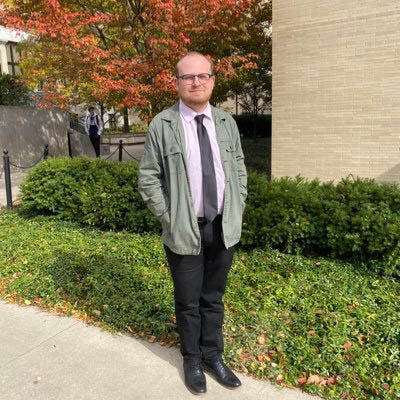
Matthew Parnell
BA History 2018, MA Communication Studies Texas Tech University 2020, ABD Communication Studies, The Pennsylvania State University
My history education at Washburn fostered empathy, critical thinking and cultural understanding in ways that impact my current work. As a Ph.D. candidate in Communication Studies, my history degree guides how I approach my academic research as I use historical analysis to texture the claims I make about human communication. The history program at Washburn taught me how to conduct research about topics I am passionate about and how to present these complex ideas to others. This skill has paid dividends across my career, as I've been able to use these skills to present complex academic theories and concepts to my peers in graduate school.
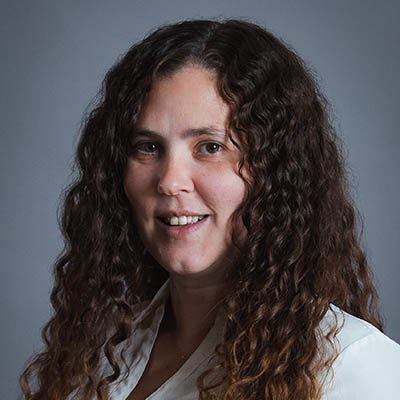
Jessica Rezac
BA History 2008, MA Museum Studies, Texas Tech 2010, Certificate Software Engineering, Flatiron School 2020
After graduating from Washburn and receiving a master's in museum science from Texas Tech, I worked in museums. I gravitated toward technology-focused museum roles, and ultimately transitioned my career to software engineering at MBB. I'm still using my history degrees in more or less direct ways as a software engineer:
- I work with museum and library clients who benefit from my knowledge of their processes and pain points.
- Studying history invites you to empathize with the people of the past, considering how their identity shapes their actions. Empathetic thinking translates well to developing software, as I seek to ensure that we're avoiding introducing new friction into our user experience.
- The [Washburn history degree's] writing-intensive curriculum helps in every role I've had. In my current position, I often write blog posts for my company, and I know I'm appreciated as a great last proofreader before copy makes it live on a client's website.
My history degree at Washburn definitely put me on this career path, but I'm truly grateful for the college experience I had surrounded by excellent faculty and intelligent students. I'm a confident voice on any project, and I attribute that skill development to my time at Washburn.
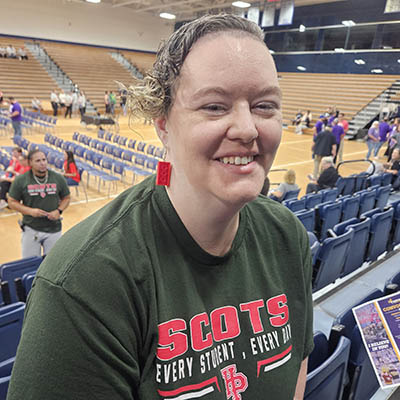
Britiany Robinson
BA History-Secondary Education, 2019
A history degree was the best foundation I could have going into the teaching field because it prepared me for a few things: First, it helped me hold writing to a high standard, which has pushed my personal goal of making my students better writers and has made me stand out in my graduate classes. Second, it gave me the critical thinking skills to navigate the ever-changing world of education and to be able to evaluate resources to give my students the best sources of information. Finally, it gave me access to a group of wonderful professors and friends that pushed me to be the best and are a great resource to call on when I meet challenges or need a reminder of how far I came to get to where I am. In short, a history degree has been the driving force behind my success as a teacher, and I truly feel that--without those skills--I would not be able to keep pushing myself to reach new levels of excellence.

Mika Schmelzle
BA History 2021, JD Washburn Law 2024
Although I do not use the historical facts and information I learned while getting my degree other than at trivia night, the writing and research skills I learned are used on a daily basis. As a current law student, soon to be (hopefully) an attorney, the writing and research skills built a foundation that helped tremendously in my research and writing classes in law school. Those skills carry over into my work at my internship, and they will be used daily in my future career.
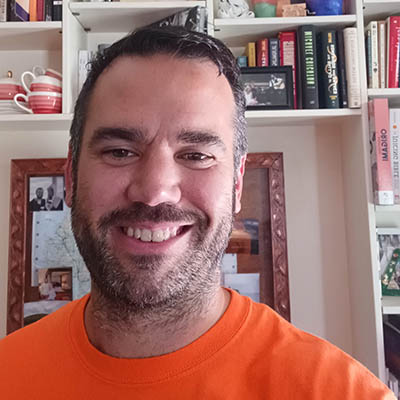
Michael Spangler
BA History 2012, MLS Emporia State 2021, MEd Fort Hays State University in progres
After graduating from Washburn, I went into the banking and insurance industry. During that time I worked in various positions trying to find what fit me the best. Eventually, I found myself as a real estate appraiser for Shawnee County when I decided it was time to go back to school and really follow my passion. In December of 2021 I graduated from Emporia State University with a master's degree in library science and information management. Currently, I am the high school librarian and social studies teacher at Jefferson West in Meriden, Kansas, and I am working on a master's in education through Fort Hays State University. Ultimately, my history degree at Washburn taught me what I can do. It helped me find my true passions and gave me the confidence to pursue them.
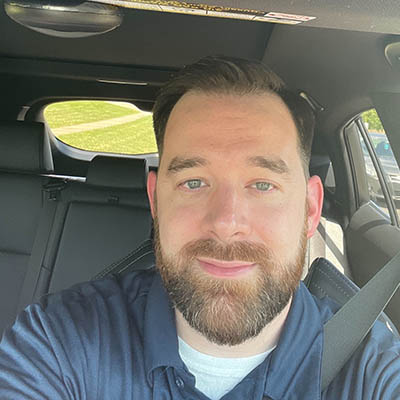
Stephen Woody
BA History 2014, MLS Emporia State 2016
I became a history major because I had a passion for learning about history in a way that went beyond the names, dates and events I had learned about in high school. I always had an insatiable curiosity about the "how and why" of history, but I lacked the ability to critically think and write about the subject. At some point midway through my college journey, I realized that the ability to critically think about things in an objective manner as opposed to a subjective one was something that was more valuable than gold. Fast forward to where I am now as an academic librarian at Washburn. I now teach critical thinking to college students for a living. As a history major, I went from being one of the worst writers I knew to one of the better writers among my professional peers today. I am now the person that others ask to review their writing, which is not something I ever thought possible prior to college. I would not be the academic librarian I am today without the critical thinking, reading and writing skills that being a history major honed over the course of my college career.


